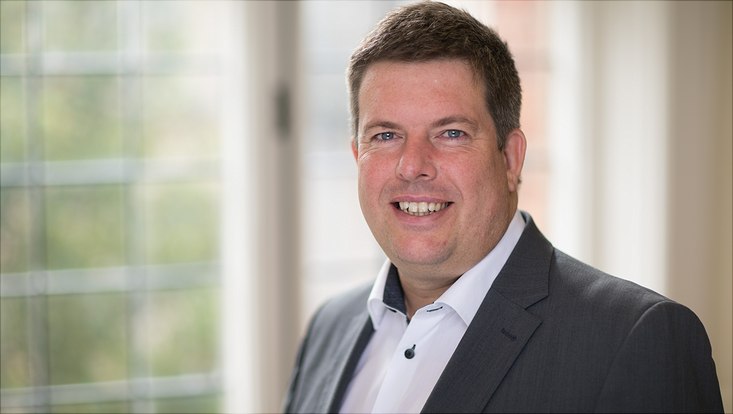Imaging of Matter
€4.9 million for the calculation of flows
20 September 2022

Photo: Oxford Martin School, Fisher Studios
Quantum technologies promise significantly faster solutions to many scientific and technological problems. A research consortium led by Prof. Dr. Dieter Jaksch from the Department of Physics at Universität Hamburg is receiving EU funding of 4.9 million euros for the calculation of fluid flows using quantum technology.
Scientific and technological progress in many fields is determined by the ability to accurately predict and optimize complex fluid flows. This applies to the physical and life sciences, including climate research, as well as the energy, chemical, automotive, aircraft and shipbuilding industries. However, the wide range of length and time scales that must be considered poses challenges for researchers: The options currently available for calculating flows are not sufficient to meet the future requirements of users in science and industry.
Developing a quantum software framework
“We will tackle this challenge by developing a quantum software framework for solving a wide range of industrially relevant computational fluid dynamics problems”, says Dieter Jaksch, who will coordinate the project “QCFD – Quantum Computational Fluid Dynamics“. This framework will consist of platform-independent quantum algorithms and hardware optimized software for platforms in the European Quantum Technology Flagship Projects.
Working in agile cycles
The project will harness the power of quantum computing for industrial applications in fluid mechanics. Using different simulation methods, the researchers aim to provide detailed information about the requirements for quantum hardware and the quantum benefits that can be achieved. They will also provide detailed feedback to hardware developers. "We will work in agile cycles to respond quickly to user demands and advances in the quality of quantum hardware," Jaksch says. The focus of the physicist, who moved from the University of Oxford to Universität Hamburg in the winter semester of 2021/2022 and conducts research in the Cluster of Excellence "CUI: Advanced Imaging of Matter," will be on platform-independent algorithms, simulation utilizing tensor networks, possible quantum advantages and feedback for hardware developers. Approximately 1 million euros will be available for this part of the project. All partners will verify the quantum software and compare it with standard computational fluid dynamics results.
The project is funded under the EU Commission's Horizon Europe Research and Innovation Actions (RIA) and is expected to start on November 1, 2022. In addition to the research group from Universität Hamburg, the research consortium includes researchers from the Hamburg University of Technology, the Technical University of Crete, the University of Innsbruck, Forschungszentrum Jülich and ENGYS Italia software company.


